Davos 2020: What is the World Economic Forum and is it elitist?
- Published
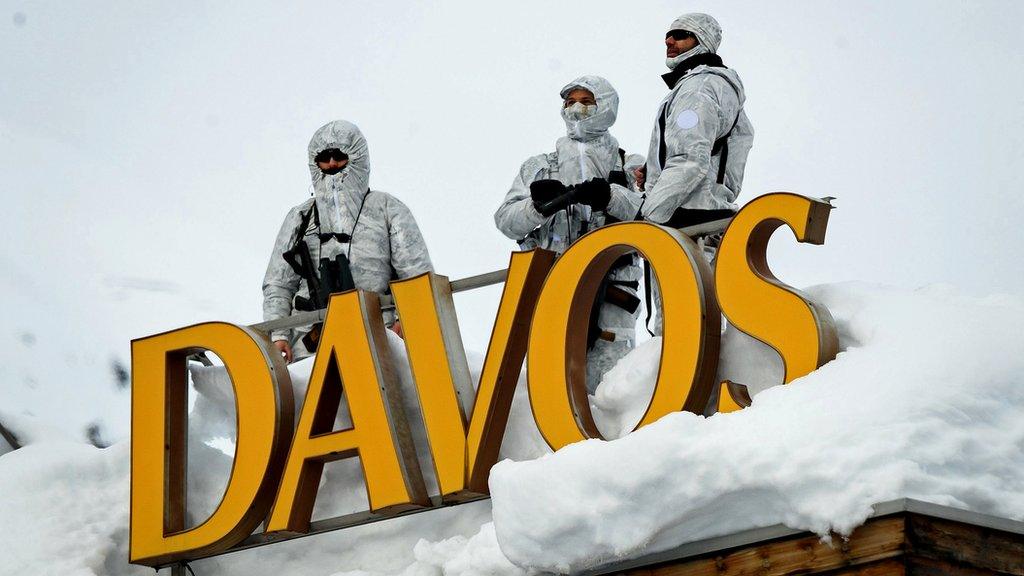
Security is tight at the Alpine event
Some of the world's top business people and politicians - plus a smattering of celebrities - will gather in Davos, Switzerland, for the World Economic Forum (WEF) this week.
US President Donald Trump, teen climate activist Greta Thunberg and Uber boss Dara Khosrowshahi are among the guests.
But what is the jet-set event for and is it elitist?
What is the World Economic Forum?
Launched in 1971, WEF aims to "improve the state of the world".
Held every year in the Alpine ski resort of Davos, the conference puts leaders from business in the same room as key players from politics, charity and academia.
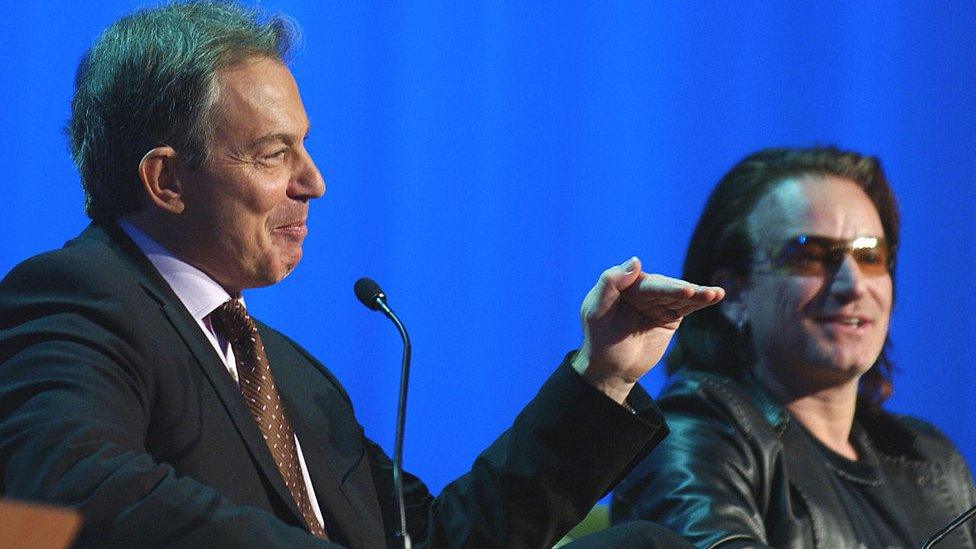
Tony Blair and U2 singer Bono talking at WEF in 2005
Many use the opportunity to hold private meetings on things like investment in their countries, and as a chance to do business deals.
High profile figures often use it to influence the global agenda. Take Prince William's speech last year on mental health, or David Attenborough's stark warnings about the environment.
Who attends Davos?
WEF typically attracts around 3,000 people, about a third of them from business. To go you have to be invited - in which case the event is free - or a member of WEF, which can cost £480,000.
World leaders, key figures from the UN and EU and the heads of major firms like Coca-Cola, Goldman Sachs and IBM attend.
Regular guests include billionaire financier George Soros, former UK prime minister Tony Blair, Facebook boss Mark Zuckerberg and U2 singer Bono.
However, new data from the World Economic Forum indicates that only 239 people from the UK will be attending this year - the lowest UK attendance since 2010 - after Boris Johnson banned ministers from attending the event.
Does Davos have critics?
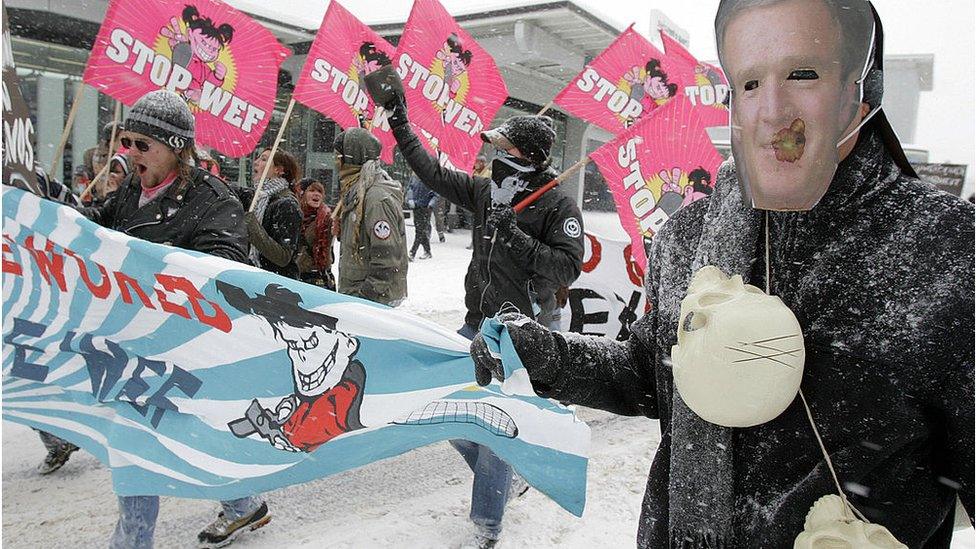
There were protests outside WEF when US President George W Bush visited in 2007
The event does not just attract power players.
Last year, Dutch popular historian Rutger Bregman used a panel to slam delegates for not paying their fair share of taxes.
Often you'll see protests in Davos and major Swiss cities.
Ukranian activists Femen, protested against male dominance of the world economy, external. And in 2012, the Occupy Wall Street movement - which campaigned against inequality - built igloos to house 50 protesters.
Is Davos elitist?
Until the financial crash of 2007-08, attending Davos was considered a must for the great and good.
But critics have suggested it is a symbol of the "global elite", some of whom are to blame for that crisis.
Last year Time magazine editor-at-large, Anand Giridharadas, described Davos as "a family reunion for the people who broke the modern world".
Even among attendees, not everyone has the same level of access. Coloured badges determine who gets to rub shoulders with whom.
The most high-profile guests get a white badge with a hologram on it, giving them access to everywhere. At the other end of the scale a "hotel" badge means you can't get into the conference centre at all.
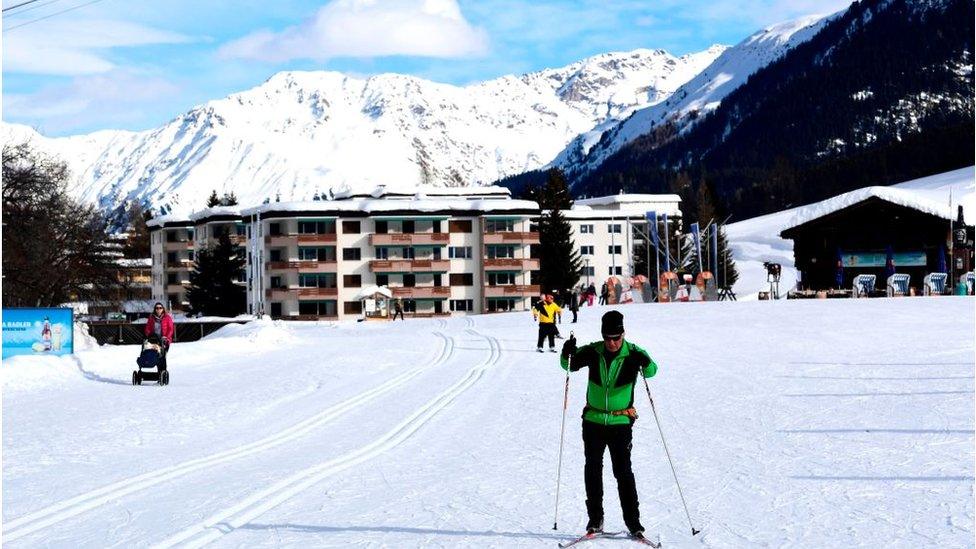
For most of the year Davos is a ski resort
It is also male-dominated, with the term "Davos Man" becoming a nickname for the type of wealthy, elite male who typically goes. Last year 22% of all Davos participants were women, up from 17% 2015.
The conference's swanky location, the private helicopters flying in and out and the array of lavish parties can add to claims the event is exclusive.
But WEF argues it is simply interested in bringing leaders together for the greater good.
And Martin Wolf, the Financial Times' chief economics commentator, says: "Elites are always a bit out of touch - that's their nature - but it is impossible to have a world without them. It is also vital that these people meet regularly and find out what each other is thinking."
What has Davos achieved?
Many companies use the event to make key pledges on issues like sustainability, or to improve diversity.
The conference has also notched up some real achievements.
In 1988, meetings between prime ministers Turgut Özal of Turkey and Andreas Papandreou of Greece brought relations between the countries back from the brink of war.
And in 2000, the Global Alliance for Vaccines and Immunization (GAVI) used it to launch programmes to immunise millions of children against disease.
What key moments can we expect this year?
Donald Trump could be the main attraction, having skipped the event last year. He is due to give a speech on Tuesday, the day his impeachment trial begins in the US Senate.
Meanwhile, Greta Thunberg is due to deliver another combative message on climate change - after trekking her way up the Alps to Davos rather than using public transport.
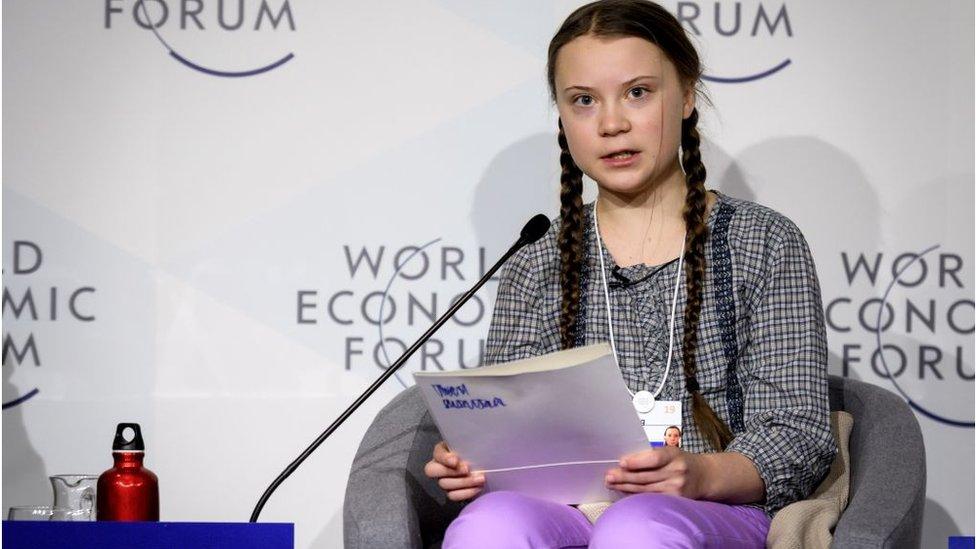
Greta Thunberg will attend again this year
Other big names will be Sanna Marin, prime minister of Finland, who at 34 is the world's youngest serving premier.
And Bollywood star Deepika Padukone will be in town talking about her battle with depression.